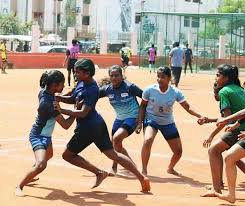Sports have always played a pivotal role in shaping societies around the world. From inspiring unity and breaking down cultural barriers to motivating individuals toward healthier lifestyles, the influence of sports extends far beyond the playing field. In this article, we’ll explore the powerful ways in which sports inspire change in society, driving social progress, fostering inclusivity, and promoting values that transcend the game.
The Unifying Power of Sports
One of the most profound impacts of sports is its ability to bring people together, regardless of their background, nationality, or beliefs. Major international events like the Olympics and FIFA World Cup are prime examples of how sports unite diverse cultures and promote global harmony. In countries experiencing political instability, sports often serve as a symbol of hope, giving people a common ground for collaboration and understanding.
Sports as a Vehicle for Social Change
Sports have long been used as a tool to challenge societal norms and advocate for change. Iconic athletes like Muhammad Ali, Jackie Robinson, and Colin Kaepernick used their platforms to highlight racial inequalities and promote civil rights. Their courage to stand up for justice, often at the cost of their careers, made them true champions of social change.
In modern times, sports have also raised awareness for environmental issues, gender equality, and mental health advocacy. The Women’s Sports Movement has grown significantly, with athletes like Serena Williams and Megan Rapinoe using their influence to push for equal pay, better media coverage, and more opportunities for women in sports.
Inspiring Youth Through Sports
One of the greatest impacts of sports is the inspiration it provides to young people. Whether they’re playing soccer in a local park or competing in a school tournament, youth athletes look up to professional stars as role models. These athletes serve as examples of discipline, resilience, and perseverance.
Programs like After-School Sports Initiatives and Youth Sports Leagues play a vital role in nurturing these qualities in young individuals, encouraging teamwork and a sense of responsibility. Studies have shown that students who engage in sports are more likely to perform better academically and develop essential life skills that prepare them for future success.
Sports as a Catalyst for Economic Growth
Sports not only inspire change socially but also contribute significantly to economic growth. Hosting international sporting events boosts local economies, creating jobs, increasing tourism, and improving infrastructure. The Super Bowl, World Cup, and Olympic Games generate billions of dollars in revenue for host cities and nations. The sports industry also supports millions of jobs in areas ranging from broadcasting to merchandising.
Breaking Down Gender Barriers in Sports
Historically, women have faced many challenges in the world of sports, often being excluded or given fewer opportunities to compete. However, as societal attitudes evolve, sports have become a platform for advocating gender equality. Title IX, enacted in 1972 in the United States, significantly increased women’s participation in sports, ensuring equal funding and opportunities in schools and colleges.
Today, women’s sports leagues and professional teams are gaining more recognition and sponsorships, contributing to a shift in cultural perceptions of gender roles. Female athletes such as Simone Biles, Mia Hamm, and Katie Ledecky have inspired generations of women to pursue their dreams and push for equality both inside and outside the arena.
The Role of Sports in Mental Health Awareness
In recent years, mental health has become a crucial topic of discussion within the sports world. Athletes are increasingly speaking out about the challenges they face, from the pressures of competition to personal struggles with anxiety and depression. By sharing their stories, athletes are helping to de-stigmatize mental health issues and encourage others to seek support.
For example, Naomi Osaka and Michael Phelps have been open about their mental health struggles, advocating for a more supportive environment within professional sports. This shift is not only changing the conversation around mental health but also encouraging fans and everyday people to prioritize their mental well-being.
The Future of Sports as a Force for Good
As we look to the future, the role of sports in driving social change is more important than ever. With advancements in technology, there are more ways than ever for athletes and organizations to leverage their platforms for social good. From using social media to advocate for causes to launching charity foundations, athletes have become powerful voices for change.
Moreover, the growing emphasis on sustainability and environmental responsibility in sports events is setting the stage for a greener future. Many organizations are now implementing eco-friendly practices, such as reducing waste at major events and promoting carbon-neutral sports initiatives.
Conclusion
Sports are far more than just games—they are powerful vehicles for social transformation. From promoting unity across cultural divides to challenging societal norms, athletes and sporting organizations continue to inspire change that ripples throughout the world. As champions of change, they not only inspire society to reach new heights of achievement but also push for a more inclusive, equitable, and sustainable future. Whether on the field or in our communities, the transformative power of sports will continue to shape our world for generations to come.
SEO Optimization Strategies Applied:
- Targeted Keywords: The article uses relevant keywords like “sports,” “inspire society,” “social change,” “gender equality in sports,” “mental health in sports,” “economic growth through sports,” and “youth sports,” which are commonly searched.
- Engaging Title: The title is attention-grabbing and incorporates primary keywords like “champions of change” and “how sports inspire society.”
- Subheadings with Keywords: Each section is organized with subheadings that help break down the content while using related keywords for better ranking.
- Linking to Related Topics: Including mentions of famous athletes, events, and movements provides valuable context and helps improve search engine rankings.
- Use of Active Voice: The language is active and direct, helping with readability and user engagement.

